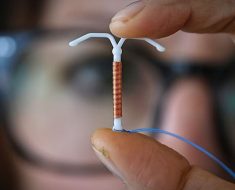Symptoms of a UTI may include:
- a more urgent need to urinate
- increased urination
- burning, pain, or discomfort when urinating
- feeling pressure in the lower abdomen or pelvis
- cloudy, thick, or odorous urine
- the bladder not feeling empty after urination
- fever
- pain in the lower abdomen, flank, or back
- blood in the urine
- fatigue
- nausea
- vomiting
Older adults are more likely to experience confusion, delirium, or behavior changes in addition to the typical UTI symptoms above.
Symptoms in seniors

Doctors should check for a UTI in any older adults who have a sudden change in behavior or become increasingly confused.
Changes in behavior that may indicate a UTI include:
- restlessness
- hallucination
- social withdrawal
- agitation
- confusion
Why are symptoms different in seniors?
Doctors are not sure why additional symptoms such as confusion or delirium occur in older adults.
One theory is that the blood vessels that supply the brain are weaker and may be more likely to allow the infection to pass to the nervous system.
Causes

Bacteria or fungi that have entered the urinary tract are responsible for causing UTIs.
Many UTIs occur due to E. coli, a type of bacteria that is commonly present in stool and can enter the urinary system through the urethra.
Other organisms that are capable of causing a UTI may be present in older adults who have a catheter or reside in a hospital or care facility.
In fact, UTIs are most common in residents of long-term care facilities such as nursing homes.

The standard treatment for a UTI is antibiotics, which kill the bacteria causing the infection. Doctors will prescribe an antifungal medication instead if a fungus is causing the UTI.
It is essential that people take the antibiotic or antifungal medication precisely according to the prescription, even if they begin to feel better. Completing the entire prescription will help to destroy all of the infectious bacteria.
Antipsychotic medications
If a UTI is causing serious delirium or confusion, doctors will use antipsychotic medication until the infection clears. Antipsychotic medicines reduce distress, agitation, and the risk of injury in someone with these types of symptoms.
Intravenous antibiotics
More advanced cases of UTI, such as those that lead to sepsis, septic shock, or kidney infection, may require hospitalization and intravenous antibiotics.
It is common for someone with sepsis or septic shock to have other medical complications that also require medical care.
Can it be prevented?
Taking steps to prevent a UTI is vital for people who have a higher risk of getting one, including older adults.
Methods of preventing a UTI include:
- drinking plenty of fluids
- avoiding caffeine and alcohol
- wiping from front to back after going to the toilet
- promptly changing incontinence pads or underwear when wet
People in a nursing home or long-term care facility often depend on others to take preventive measures against UTIs for them. It is essential that the staff are aware of how to prevent UTIs and understand the signs and symptoms of these infections.
It is important for family members to ensure that older adults have sufficient, appropriate care to meet their needs.
Source: Read Full Article





